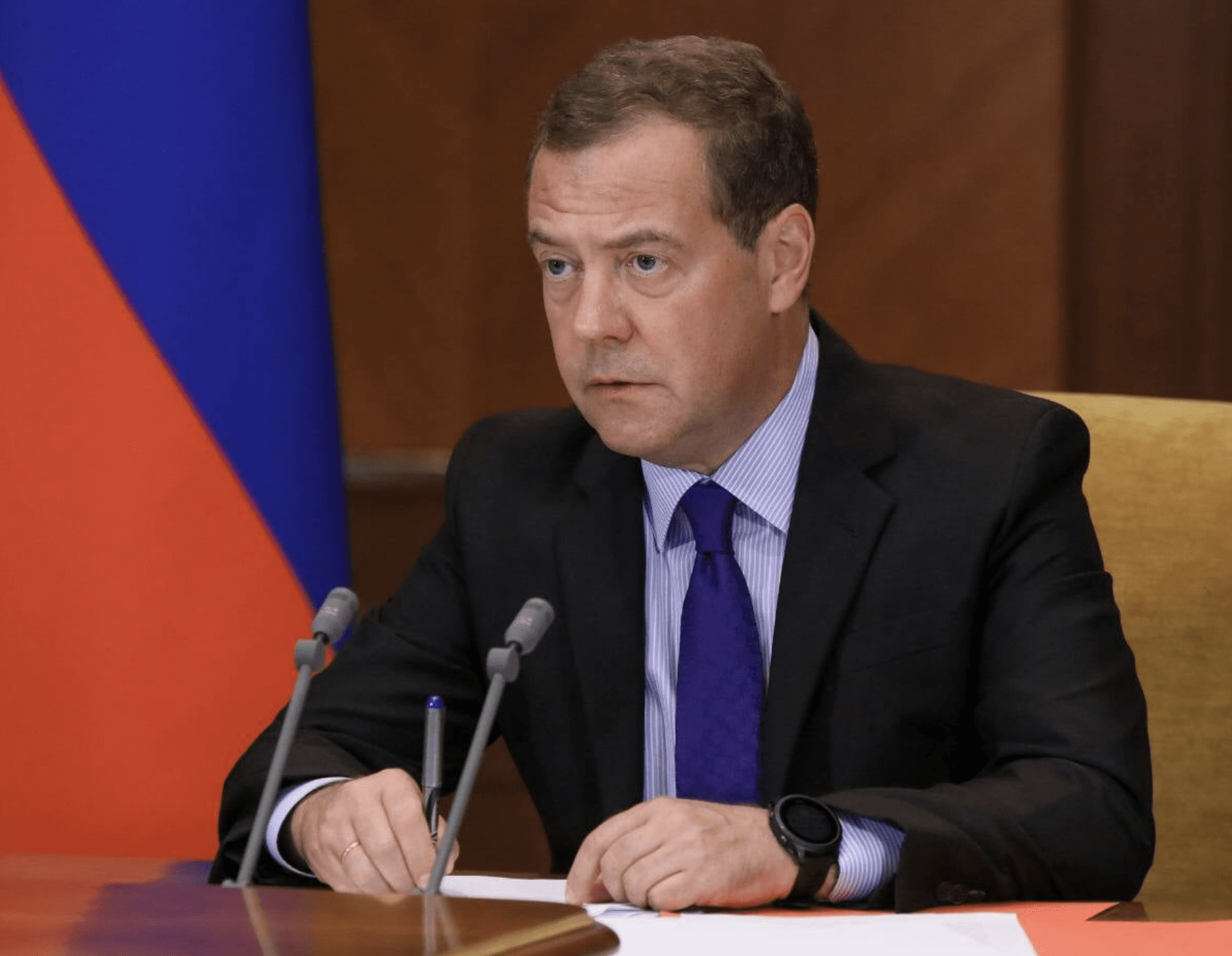
Amid sky-high tensions with the collective West, one of Vladimir Putin’s most trusted allies has warned that Russia, the world’s largest wheat exporter, will restrict vital agricultural and food exports to countries deemed “friendly” to Moscow, prompting widespread concerns of a global food and migration crisis.
Dmitry Medvedev, Russia’s former president who now serves as the deputy chairman of Russia’s security council, on Friday warned on social media that the Russian Federation—in retaliation for unprecedented sanctions imposed by the EU, UK, and North America over its invasion of Ukraine—will stop supplying its vital food and agricultural resources to the country’s political adversaries.
“It just so happens that the food security of many countries depends on Russian supplies,” Medvedev wrote, adding: “It turns out that our food is our quiet weapon. Quiet but ominous.”
The top security official went on to say: “The priority in food supplies is our domestic market. And price control… We will supply food and crops only to our friends (we have many of them, and they are not in Europe in North America). We will sell both for rubles and for their national currency in agreed proportions.”
To conclude his remarks, Medvedev stated: “We will not supply our products and agricultural products to our enemies,” “And we won’t buy anything from them (although we haven’t bought anything since 2014, the list of products prohibited for import can be further expanded).”
Medvedev’s remarks come just days after Russian President Vladimir Putin—in a bid to bolster the country’s currency—demanded that trading partners, especially those “unfriendly nations” in the West, pay for the country’s natural gas with rubles or risk being cut off from the supply entirely.
Europe’s dependency on Russian gas cannot be overstated. According to the latest statistics, nearly half (41.1%) of the EU’s natural gas imports come from Russia, while non-EU countries like North Macedonia, Bosnia and Herzegovina, and Moldova rely exclusively on Russian gas imports.
Europe’s dependency on Russian imports does not end with natural gas. Russia also happens to be the European Union’s third-largest partner for imported goods, providing the bloc with 7.5% of its goods shipped from abroad, according to EU statistical agency Eurostat.
Weeks ago, The United Nations warned that Russia’s invasion of Ukraine—along with its Black Sea blockade which has delayed critical grain exports—could prompt a global famine, given that Russian and Ukraine together export more than a quarter of the globes’ wheat.
“With the Russian invasion, we are now facing the risk of imminent famine and starvation in more places around the world. The military attacks against Ukraine must be stopped immediately before there are profound global, long-term consequences to everyone’s food security,” Michael Fakhri, the UN Special Rapporteur on the right to food, wrote in a press release.
Several days later, Fakhri’s statements were echoed—albeit with an increasingly dire tone—by David Beasley, the executive director of the United Nations World Food Program, who warned massive migratory movements from the Global South would inevitably follow as a result of the severe disruption that’s been felt across international food markets.
“If you think we’ve got Hell on earth now, you just get ready. If we neglect northern Africa, northern Africa’s coming to Europe. If we neglect the Middle East, [the] the Middle East is coming to Europe,” Beasley ominously warned.
On Tuesday, Russian President Vladimir Putin raised precisely the same issue. While speaking at a meeting on developing food production, the Kremlin chief said: “[The West] will inevitably exacerbate food shortages in the poorest regions of the world, spur new waves of migration, and in general drive food prices even higher.”
“In these current conditions, a shortage of fertilizers on the global market is inevitable,” Putin continued, adding: “We will have to be more careful about food supplies abroad, especially carefully monitor the exports to countries which are hostile to us.”
